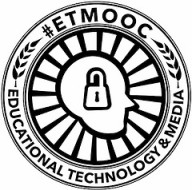A colleague of mine shared this editorial from the Boston Globe with me last week. It is interesting to see how the president of a university like Harvard is out front and contributing to their own marketing efforts in such a public way. The “revolution” is now officially upon us, right?
Once upon a time university and college presidents were more vocal participants in the public discourse. Then that seemed to fade as they all become more CEOs than presidents, more sensitive to endowments then education. In a way it is refreshing to see Drew Faust throw herself out there. My fear is that so strong is Harvard’s gravitational pull that what they do tends to set the standard and tempo for so many other institutions. Plus, she just has it all wrong on the participatory level.
The interesting thing to me here is just how oversold this EdX and MITx concepts. I am far from the first one to suggest that they are , in fact, not all that revolutionary. What might be revolutionary is that these venerable institutions are giving something away for free, in the form of course content. Although, rest assured they are well on the path of figuring out how they can leverage this freebie into some mechanism to separate participants from their money.
However, all of these xMOOC efforts are still the ultimate in an old world model of teaching and learning, “We have scarce knowledge that we will benevolently bequeath to you, the student, pouring it into your wee head so that you may grow.” Better still, you can say that you got it from [insert brand name university here], eventually for a fee.
Video lectures are still lectures, which we know is only one model of teaching that achieves mixed results. There certainly is a time and place for lecture as an educational tool, and it can be effective too. Yet, a lecture model is still rooted in the notion of scarce, stored knowledge, which is increasingly unraveling. What’s more, as free as some of it might be, it is certainly not open – at least in the truest sense of the term. Were they truly open and distributed across a range of platforms, not hiding behind clunky course management systems, xMOOCs might be more revolutionary but even then only slightly. Instead, these courses are tightly bound behind a secured digital wall, and they are not necessarily available forever either.
In contrast to the connectivist MOOCs, which are open, dynamic, and challenging the very notion of what a course might actually be, the brand name efforts significantly pale on the scale of revolutions, which doesn’t exist but should.
Somewhere in a Latin American Internet cafe the next would-be, digitally savvy Che should be building a matrix of educational revolutions on a laptop that establishes a spectrum, or at least top ten list, to be shared with the world wide web! That would be almost as entertaining as President Faust’s ironic invocation of the blackboard.
I am not sure who Harvard uses for their course management system. Perhaps the Blackboard revolution has returned and she has made her own devil’s bargain.


